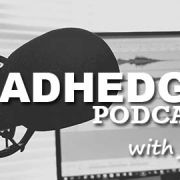The Mad Hedge Fund Trader Interviews John Mauldin on Hedge Fund Radio

This ratio, which is defined by the GDP divided by the money supply, bottomed at 1.15 in 1946. It peaked at a breathtaking 2.2 times in 1997, near the top of the Dotcom bubble. The ratio has been retreating ever since, has recently accelerated down to the 100 year mean, but still has much farther to fall to get to the bottom of the 100 year range. The collapse of velocity signals the end of a 50 year super cycle in lending.
For you and I, this means lower economic growth for perhaps another decade. It is partly the result of banks getting generous funding from the Treasury, and then sitting on it. The bucks simply stop there. It suggests that no matter how much money the government pumps into the economy, it might as well be pushing on a wet noodle. The gold bugs have got it all wrong, simply focusing on money supply growth and expecting hyperinflation. A lot of money can sit and go nowhere. The inflation will come back with a vengeance when the economy revives and banks finally resume lending.
With so much new money being created in the last two years, the chances of the Fed being able to head this off are close to nil. Similarly, the bond vigilantes may have to wait a couple of years for their big move down in the 30 year Treasury bond (TBT). When the bond markets call ?times up,? the US will be forced to embark on some highly deflationary spending cuts. If this happens during a recession, it could be a disaster. John thinks there will be a substantial slowdown in growth in Q3 and Q4. With anticipated federal tax increases of 2% of GDP in 2011 added to a further 1% in state tax hikes, the recovery will be strangled in its crib. That?s when the risk of a double dip recession explodes. Over 3-4 years higher taxes could add up to a burdensome 9% drag on GDP.
John says that emerging markets (EEM) will decouple from the US and keep powering up, as this is where the real economic growth is (EEM). He has been a gold bull since 2002 (GLD), when it was below $300/ounce, and isn?t backing off from that position, but prefers to own it against Euros at this point. He thinks the entire premise for the existence of the European currency (XEU) is questionable, and sees it eventually moving to parity against the dollar. John doesn?t manage money directly himself, but outsources assets with market timers employing a number of different models. One firm he has particular success with is CMG in Philadelphia (CMGTX). He really only selects individual stocks in the biotech area, which he thinks have the potential to develop into a bubble, and has a variety of small cap and microcap holdings.
John has an incredibly diverse past, which includes a degree from Rice University, a stint at divinity school, and time spent running a check printing company which led him into newsletters. Today, his two letters, Outside the Box and Thoughts From the Frontline, go out on the Internet to 1.5 million readers a week. John is the publisher of three investment books, The Millennium Wave, Just One Thing, and Bulls Eye Investing. To learn more about John?s many activities in the markets, please visit his website at http://johnmauldin.com/? . To catch my entire insightful interview with John Mauldin on Hedge Fund Radio, please click on the ?PLAY? arrow above.
Hedge Fund Radio is a weekly program featuring one-on-one interviews with the titans of the hedge fund industry. The show is hosted by legendary hedge fund manager John Thomas, one of the most seasoned players in the industry. It is broadcast live on station KGOL 1180 AM in Houston, Texas as part of the BizRadio? network to 100,000 local listeners, and will be streamed online to a further 100,000 national and international listeners.
The show is broadcast every Saturday morning at 12:00 pm Eastern time, 11:00 am Central time, 9:00 am Pacific Coast Time, and 5:00 pm Greenwich Mean Time. For pilots and the military, that is 17:00 Zulu time. For the online link to the show, please go to www.bizradio.com or click here , click on ?Listen Live!?, and click on ?Houston 1110 AM KTEK.? For that added insight into the future of the markets tune in, or catch the show in my Hedge Fund Radio archives.

